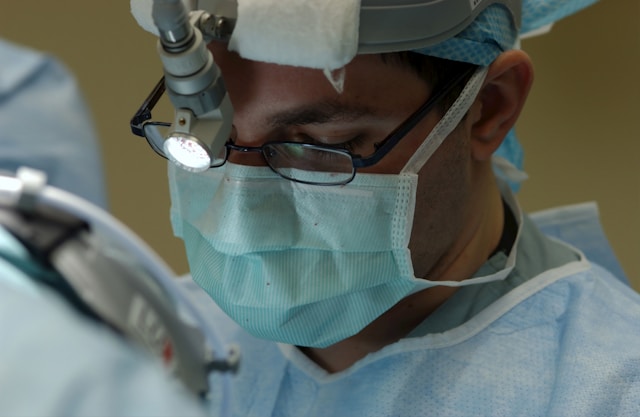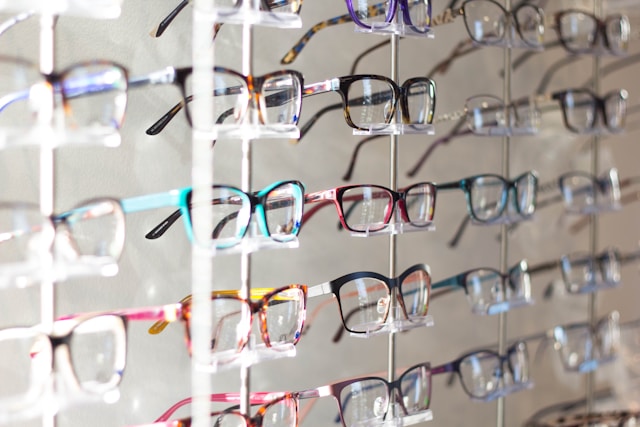As we age, our vision often undergoes significant changes. Maintaining eye health becomes increasingly important for seniors to ensure a high quality of life. This article explores seven essential vision care tips for seniors, providing practical advice to help you keep your eyes healthy and your vision sharp.
1. Regular Eye Examinations
One of the most important vision care tips for seniors is to have regular eye examinations, which can be conducted by an optometrist or an ophthalmologist. Comprehensive eye exams can detect early signs of eye conditions such as cataracts, glaucoma, and macular degeneration, which are more common as we age.
Regular eye exams can reveal changes in your vision that might not be immediately noticeable. Early detection allows for timely treatment, which can prevent further deterioration of eyesight. It is generally recommended that seniors have a comprehensive eye exam at least once a year.
What to Expect During an Eye Exam
During an eye exam, your optometrist will check for common eye conditions, assess your vision, and update your prescription if necessary. They may use various tests to examine the health of your eyes, including a visual acuity test, a refraction assessment, and a dilated eye exam.

2. Manage Chronic Conditions
Chronic health conditions such as diabetes and hypertension can significantly impact vision. Proper management of these conditions is crucial for maintaining eye health. If you have any of these conditions, keep reading to learn some of the signs to watch out for.
Diabetes and Vision
Diabetes can lead to diabetic retinopathy, a condition that damages the blood vessels in the retina and can cause vision loss if left untreated. To prevent this, it’s essential to control blood sugar levels, maintain a healthy diet, and have regular check-ups with your healthcare provider.
If you have diabetes, you should see an ophthalmologist who is a retina specialist in this disease area who can provide you with the proper treatment and guidance to ensure you maintain your vision.
Hypertension and Vision
High blood pressure can cause damage to the blood vessels in the eyes, leading to hypertensive retinopathy. Managing your blood pressure through medication, diet, and exercise can help protect your vision. This is why you should have regular appointments with your primary physician who can help you maintain good health.
3. Wear Protective Eyewear
Protective eyewear is not just for the young. Seniors should also protect their eyes from potential harm. This includes wearing sunglasses to shield your eyes from harmful UV rays and using safety glasses when performing tasks that could result in eye injury.
Wearing sunglasses that block 100% of UVA and UVB rays can reduce the risk of cataracts and other eye problems. Look for sunglasses that offer full protection and wear them whenever you are outside, even on cloudy days.
If you enjoy hobbies or home improvement projects, wearing safety glasses can protect your eyes from potential hazards like flying debris and dust. Ensure that the safety glasses fit properly and meet safety standards.
4. Maintain a Healthy Diet
A balanced diet rich in nutrients can support eye health. Certain vitamins and minerals play a crucial role in maintaining good vision. Below are the key nutrients for eye health.
- Vitamin A: Found in carrots, sweet potatoes, and leafy greens, vitamin A is essential for maintaining good vision and preventing night blindness.
- Vitamin C: Citrus fruits, strawberries, and bell peppers are rich in vitamin C, which can reduce the risk of cataracts and macular degeneration.
- Vitamin E: Nuts, seeds, and spinach contain vitamin E, an antioxidant that protects the eyes from damage caused by free radicals.
- Zinc: Found in meat, shellfish, and legumes, zinc is vital for maintaining the health of the retina.
To get all of these nutrients, incorporate a variety of fruits, vegetables, lean proteins, and whole grains into your diet. Omega-3 fatty acids, found in fish like salmon and flaxseeds, are also beneficial for eye health. Staying hydrated by drinking plenty of water is equally important.
Related: 10 Tips for Eating Healthy When Eating Out
5. Stay Active
Regular physical activity benefits overall health and can also have a positive impact on your vision. Exercise improves blood circulation, which in turn helps maintain the health of your eyes. Below are some of the benefits of exercise for eye health.
- Improved Blood Flow: Regular exercise enhances blood flow to the retina and optic nerve, providing them with essential nutrients and oxygen.
- Reduced Risk of Chronic Conditions: Staying active can help manage conditions like diabetes and hypertension, which can negatively affect vision.
Struggling to exercise? Choose activities that you enjoy and can perform safely. Walking, swimming, and yoga are excellent options for seniors. Aim for at least 30 minutes of moderate exercise most days of the week.
Related: The Best Exercise Classes for Older Adults

6. Quit Smoking
Smoking is harmful to your overall health, including your vision. It increases the risk of developing cataracts, macular degeneration, and other eye diseases.
Smoking reduces the amount of antioxidants in your eyes, which are crucial for protecting against damage from free radicals. It also restricts blood flow to the eyes, increasing the risk of various eye conditions.
Quitting smoking can be challenging, but numerous resources are available to help you. Consider joining a support group, using nicotine replacement therapies, or seeking advice from your healthcare provider. Every effort to quit brings significant benefits to your eye health.
7. Practice Good Eye Hygiene
Simple habits can make a big difference in maintaining eye health. Practicing good eye hygiene can help prevent infections and other eye problems. Here are some basic tips for good eye hygiene:
- Wash Your Hands: Always wash your hands before touching your eyes, especially when inserting or removing contact lenses.
- Avoid Rubbing Your Eyes: Rubbing your eyes can introduce germs and cause irritation. If your eyes itch, use a clean tissue or eye drops.
- Follow Contact Lens Care Instructions: If you wear contact lenses, follow your eye care provider’s instructions for cleaning and storing them to avoid infections.
- Take Breaks from Screens: Prolonged screen time can cause eye strain. Follow the 20-20-20 rule: every 20 minutes, look at something 20 feet away for at least 20 seconds.
- Use Eye Drops: If your eyes feel dry, use lubricating eye drops to keep them moist and comfortable.
Overall, maintaining good vision as you age involves regular eye exams, managing chronic conditions, wearing protective eyewear, eating a healthy diet, staying active, quitting smoking, and practicing good eye hygiene. By incorporating these seven vision care tips into your daily routine, you can help protect your eyes and enjoy better vision for years to come. Remember, it’s never too late to start taking care of your eyes!
You May Also Enjoy: 10 Best Assistive Devices for Low Vision


















